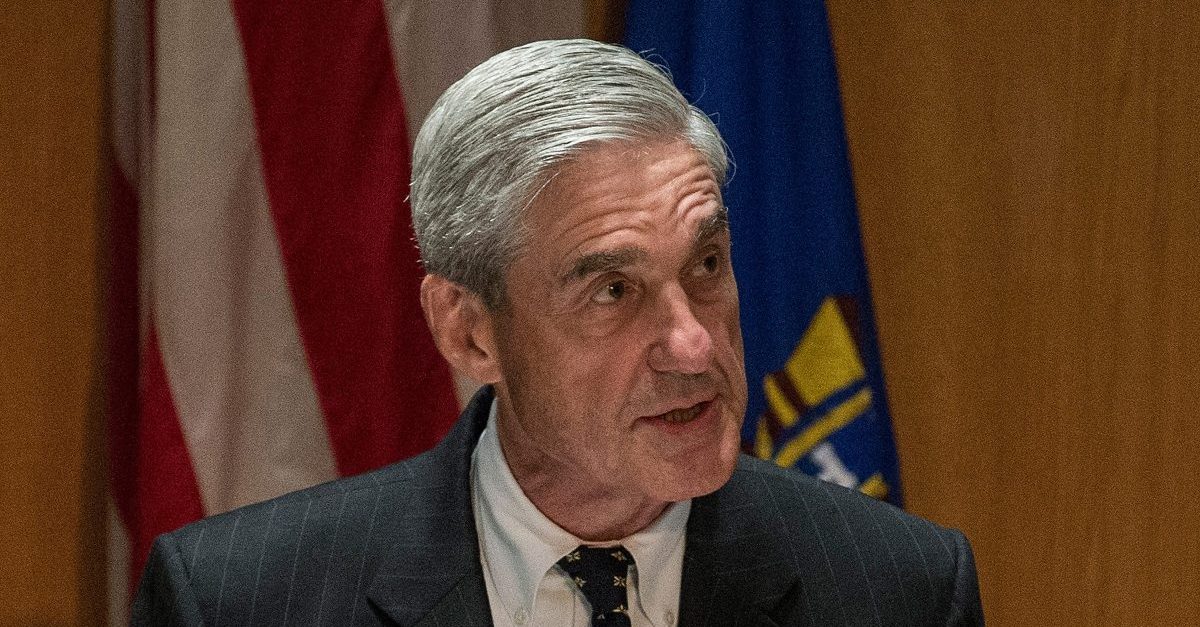
Scholars and the Department of Justice, both overwhelmingly agree that a sitting President cannot be indicted. It is sometimes called the Presidential Privilege Against Prosecution. This derives from our very founding, as our leading legal jurist, Justice Joseph Story, explained in 1833: “The President cannot, therefore, be liable to arrest, imprisonment, or detention, while he is in the discharge of the duties of his office.”
Published reports claim that Special Counsel Robert Mueller threatened to issue a subpoena against the President. Mueller is a Constitutionally inferior officer and a direct subordinate of the President of the United States. Our Constitution does not allow the Presidency to be hijacked by a single inferior officer and subordinate employee like Mueller. That is why no court can Constitutionally compel compliance with such a grand jury subpoena nor enforce its terms on a sitting President. Constitutionally, Mueller works for President Trump; Trump doesn’t work for Mueller. The people elected Trump to be President, not Mueller.
Trial subpoenas for documents in the President’s possessions date to Chief Justice Marshall’s issuance of a such a subpoena to President Jefferson in his presiding over the trial of Aaron Burr. Jefferson noted in his response he did so only by mutual consent and voluntarily, because Jefferson believed no such subpoena could be Constitutionally enforced. The only prosecutor to ever threaten a grand jury subpoena was Independent Counsel Ken Starr, who withdrew the subpoena and interviewed the President in private at the White House instead. Mueller is not an Independent Counsel. The court did not decide the issue in the Clinton vs. Jones case, as the issue there only concerned whether a President could legally stay a civil suit arising out of “purely private” conduct, all occurring prior to the Presidency. By contrast, almost all of Mueller’s questions concerns post-election public conduct. The Nixon case concerned a trial subpoena for documents in the custody of the White House to be reviewed in camera by a court, not a grand jury subpoena for the personal testimony of the President. The Supreme Court noted in Nixon it would be “inappropriate” for the court to have employed any contempt procedure in the case. The Supreme Court admitted such a process would be a “constitutional confrontation.” The Court further noted that issue – “whether a President can be cited for contempt” – would pose an entirely different issue.
Many of our founders had no doubt: a court cannot enforce a subpoena against the President for personal testimony. It was one of the few areas where Thomas Jefferson & John Adams both agreed. As Jefferson explained, a President “subject to the commands” of the judiciary “and to imprisonment for disobedience” would be forced to “withdraw” from his elected duties and give a single unelected official power over the Presidency. As Adams and then Senator, later Chief Justice, Ellsworth explained: there could be “no other process whatever lay against” a sitting President except for impeachment. The example raised concerned “murder on the streets”; Adams & Ellsworth’s reply: “when he is no longer President, you can indict him.”
As Yale Law Professors Akhil Amar and Brian Kalt write: “the right of all the People to a functioning government trumps the right of only a few of them to have an instant prosecution.” Indeed, “the Constitution foresees only two ways of removing a disfavored President from office: voting him out and impeaching him.” This is why our Constitution prohibits enforcement of subpoenas against a sitting President: to protect elections, keep the power of the Presidency in the voting public, and prevent a de facto coup by a single upstart unelected prosecutor, jurist or grand jury.
Second, Mueller’s use of a grand jury subpoena raises another nagging Constitutional problem: the limited authorization of Mueller to the 2016 campaign and the concomitant limited recusal of Sessions to the 2016 campaign. Any subpoena directed to the President strikes me as requiring separate, special authorization (the Supreme Court hinted at this by pointing out in Nixon that special counsel authorization specifically allowed seeking materials potentially protected by executive privilege); and second, the subpoena would exceed the subject matter and durational limitations of Mueller’s authorization. The Supreme Court in Nixon recognized that the trial subpoena was only valid as long as the Attorney General gave specific, clear authority for the Special Counsel to subpoena such evidence, and only as long as the Attorney General neither amended nor revoked the special counsel’s scope of authorization, or the regulations defining that authorization. The Supreme Court admitted the Attorney General could do so at any time. Significantly, the Supreme Court noted the delegation was “not an ordinary delegation,” and employed very unique empowerment of the Nixon Special Counsel, as the President there personally approved the process. No such authorization appears to exist here. Mueller’s only publicly disclosed authorization concerns the 2016 election and Paul Manafort’s involvement in Ukraine from before the election.
Ignoring a grand jury subpoena could be more than just within his power but Constitutionally necessary. Why? Because it is the only Constitution-conforming way to serve the purpose of Presidential Immunity from criminal prosecution in the first place: “it prevents relatively unrepresentative actors from holding the country hostage.”
Robert Barnes is a California-based trial attorney whose practice focuses on Constitutional, criminal and civil rights law. You can follow him at @Barnes_Law.
[Image via Andrew Burton/Getty Images]
This is an opinion piece. The views expressed in this article are those of just the author.